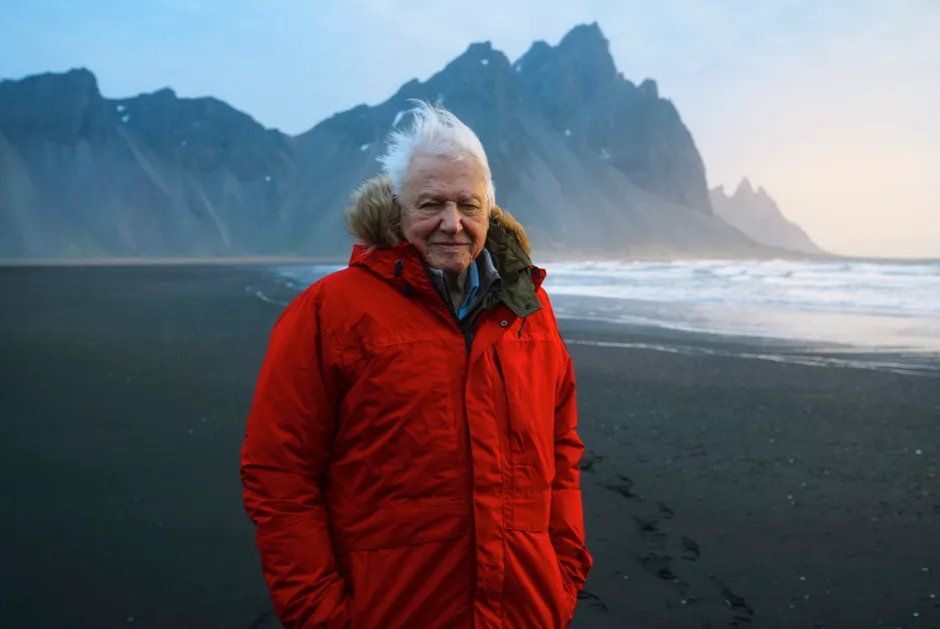Staying in? Thought as much. The coronavirus pandemic has us most of us on lockdown, so why not use this as the perfect opportunity to kick back and catch up on the best of what all the online streaming services have to offer.
And remember, stay safe and stay indoors.
On the BBC
In the last month, content on BBC iPlayer has grown exponentially, with TV boxsets such as French and Saunders, The Walking Dead and Spooks all being added to the service along with football and sports programmes for those with an athletic itch to scratch.

Included in our top science BBC iPlayer pics are, of course, the boxsets of Sir David Attenborough shows providing hours of calming nature and wildlife content. Brian Cox’s series The Planets is also available now, diving into the eight magical worlds in our Solar System. Plus, there’s a whole list of documentaries for Louis Theroux fans.
On BBC Sounds is a collection of some of our favourite podcasts and radio series, including over 200 episodes of The Life Scientific with Professor Jim Al-Khalili and a wide range of expert guests. You could also listen to any of the 15 seasons of the brilliant Curious Cases with Dr Adam Rutherford and Dr Hannah Fry. For lighter listening, Sir David Attenborough reads The Peregrine, JA Baker's British nature writing classic.
Netflix
Global interest in Netflix is up 142 per cent from March last year, with many of us looking for something gripping to keep ourselves occupied during social isolation.
If you're the sort of person who sits down with a group of friends to have a natter over Netflix, Netflix Party is a Google Chrome extension (so you need to be using a desktop or laptop computer to stream) which lets you and your UK mates chat while watching shows in synchronisation.
Read more tech stories:
- Netflix to drop streaming quality amid coronavirus outbreak
- 17 cool gadgets: our pick of the best new tech for 2020
- Could Sir David Attenborough's new Netflix show help us save our planet?
If you’re looking for documentaries to watch with friends, a sure discussion-starter is the depiction of the Cambridge Analytica scandal, The Great Hack. Or, understand the mind and motivations of Bill Gates with Inside Bill’s Brain, a three-part docuseries on Bill’s life and career as the co-founder of Microsoft.
The Netflix original Babies is listed as ‘feel-good’ watching, and it’s a heart-warming look at the first year of a child’s life – covering the science of bonding, the learning of language and the importance of sleep, as well as the age-old question of nature vs nurture.
The latter is also the topic of documentary film Three Identical Strangers, which begins with the incredible story of three men, indistinguishable from each other but from different states in America who find out discover that they were actually born triplets, then separated at birth by an adoption agency. It’s another moving story, but with a sinister motive just under the surface.
Amazon
As schools in the UK shut last month, Amazon announced they would make over 300 free audiobooks available on Audible.com. Literary classics (that we’ve all been meaning to read but have never found the time) including Frankenstein, Brave New World and Paradise Lost.
There are also books in six different languages and categories from ‘littlest listeners’ up to ‘teen’, for those parents struggling to adjust to homeschooling. Audible have said that the books will be free “for as long as schools are closed”.

Amazon’s video streaming service, Prime Video, has a wide range of Bafta-winning movies and critically acclaimed TV shows, including Good Omens, adapted from the novel by the late Terry Pratchett and fantasy author Neil Gaiman.
Also available to watch now is The Aeronauts, starring Eddie Redmayne as a meteorologist in an adventure loosely based on an 1862 balloon flight by two British aeronauts hoping to break the world flight altitude record.
Unfortunately, Prime isn’t the best for science documentaries, but it is well worth watching both Particle Fever and Project Nim using the service.
From Mark Levinson, a physicist-turned-filmmaker, Particle Fever is the story of one of the biggest, most expensive science experiments in history: the Large Hadron Collider.
Where Particle Fever looks at huge questions in the universe, Project Nim leads us to question our own life and the nature of humankind. Can a chimpanzee learn to communicate if it was raised by humans like their own child?
The documentary is based on a real 1970s research project at Columbia University, though it’s worth pointing out that one of the lead researchers on the project, Herbert S. Terrace, has criticised the documentary for failing to represent the “theoretical significance” of the science.
Disney+
Disney+was launched in the UK in March (though has been out in other parts of the world for several months) as a rival to Netflix and Amazon Prime. In just a short time, the service has accumulated over 50 million subscribers, all wanting to stream content from Disney, Pixar, Marvel, Star Wars and National Geographic.
Without wanting to name all the Disney classics on our watchlist (there’s some debate in our office, harking way back before any mention of coronavirus and lockdown), but top runners are Sword in the Stone and Aladdin) and the fantastic Pixar film that is Wall-E. Here’s the rest of the best things to watch on Disney Plus.
In Science Fair, nine school students from around the world compete to take the stage as the winner of the International Science and Engineering Fair, while in Brain Games the challenges are in the mind, and the participant is you.
One Strange Rock is a documentary series for fans of Brian Cox, telling the story of our home planet through the words of astronauts and hosted by actor Will Smith. Yes, Men in Black’s Will Smith.
TED talks
For short but sweet viewing, TED.com is the place to go. With mini-lectures from Science Focus favourites such as Hannah Fry and Sophie Scott, we’ve found TED talks to be the perfect accompaniment to those working from home lunch breaks that can seem awfully quiet to ones in the office.
Other top picks include the late Stephen Hawking’s talk Questioning the Universe, psychology low-downs from Dan Gilbert, and stories on the science of love from anthropologist Helen Fisher.

